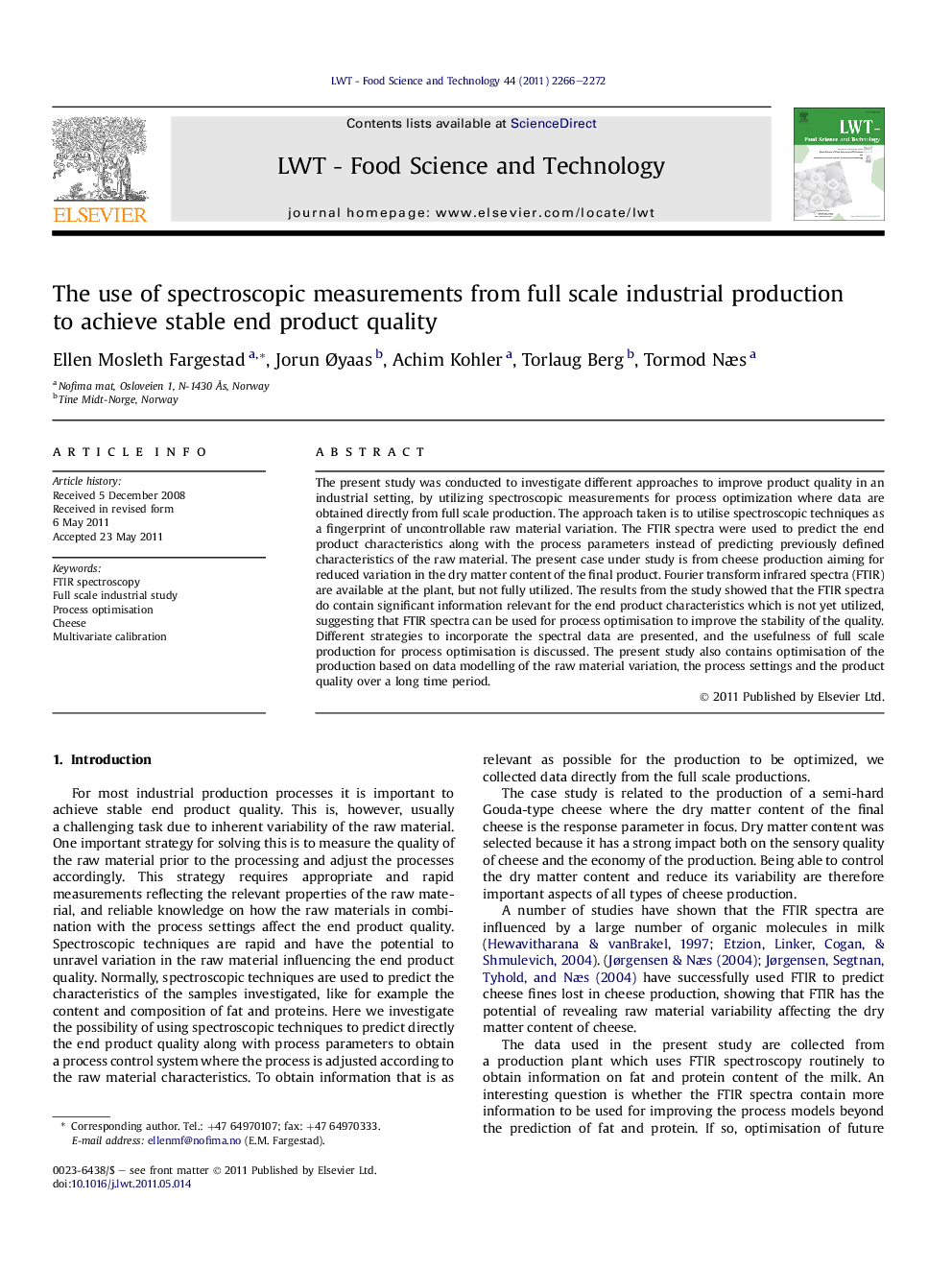| Article ID | Journal | Published Year | Pages | File Type |
|---|---|---|---|---|
| 6405906 | LWT - Food Science and Technology | 2011 | 7 Pages |
The present study was conducted to investigate different approaches to improve product quality in an industrial setting, by utilizing spectroscopic measurements for process optimization where data are obtained directly from full scale production. The approach taken is to utilise spectroscopic techniques as a fingerprint of uncontrollable raw material variation. The FTIR spectra were used to predict the end product characteristics along with the process parameters instead of predicting previously defined characteristics of the raw material. The present case under study is from cheese production aiming for reduced variation in the dry matter content of the final product. Fourier transform infrared spectra (FTIR) are available at the plant, but not fully utilized. The results from the study showed that the FTIR spectra do contain significant information relevant for the end product characteristics which is not yet utilized, suggesting that FTIR spectra can be used for process optimisation to improve the stability of the quality. Different strategies to incorporate the spectral data are presented, and the usefulness of full scale production for process optimisation is discussed. The present study also contains optimisation of the production based on data modelling of the raw material variation, the process settings and the product quality over a long time period.
⺠The authors show that the end product quality may be improved by the use of full scale industrial production. ⺠Achieved by utilizing FTIR spectroscopy of raw material to predict end product quality with adjustable process parameters. ⺠This was utilised by adjusting the process according to raw material quality to achieve the end product target quality.
